News
Danone sued by environmental groups over its global plastic pollution
16 Jan 2023
A group of environmental groups, led by ClientEarth, is suing Danone for failing to adhere to France’s duty of vigilance law through its use of single-use plastic and pollution.
A new French law meant to regulate companies’ environmental impact is at the centre of a lawsuit between a climate activist group and multinational dairy corporation Danone.
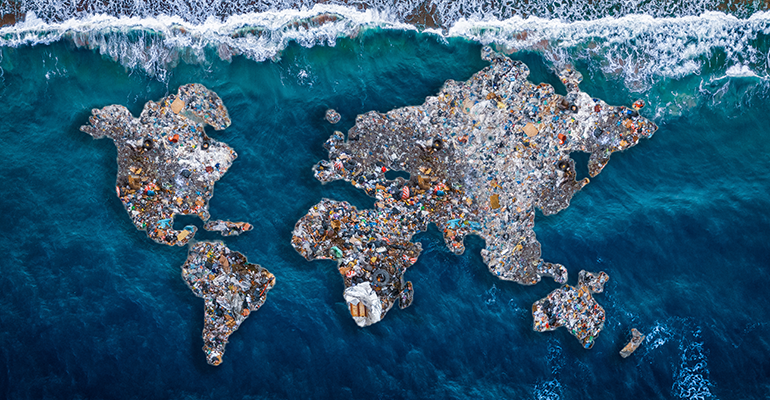
ClientEarth, an environmental law charity based in London, accused Danone of failing to adhere to the duty of vigilance law that was passed in 2017, the first of its kind in Europe. It requires French companies to publish an annual vigilance plan that comprehensively identifies their environmental and social risks.
ClientEarth: Food industry pretends recycling is a silver bullet
The environmental group pointed to Danone’s single-use plastic production and pollution as reasons for the lawsuit. In partnership with Surfrider Foundation Europe and Zero Waste France, ClientEarth filed the court case in the Paris Tribunal Judiciaire on 9 January.
ClientEarth said it believes that the vigilance law “should oblige companies to provide satisfactory responses” on the plastics crisis. And as one of the world’s top plastic polluters, ClientEarth claims Danone hasn’t done enough to offset its damage to the environment and address its contribution to climate change.
“[Danone] continues to rely on single-use plastic packaging in the hopes that recycling will miraculously deal with the flood of plastics it puts on the market,” said Rosa Pritchard, ClientEarth plastics lawyer. “But recycling is a limited solution as only 9% of plastics ever made have been recycled. It’s unrealistic for food giants like Danone to pretend recycling is the silver bullet.”
To rectify this, ClientEarth wants Danone to map the impacts its use of plastics has on the environment, climate, health, and human rights from production to end-of-life, provide a complete assessment of its plastic footprint, and put together a “deplastification” plan with quantified and dated objectives.
Danone: ‘We aim to make our packaging 100% circular’
Danone’s climate commitments mostly focus on creating a circular economy of its packaging. According to the company, 86% of its total packaging and 77% of its plastic packaging was reusable, recyclable, or compostable as of 2017.
It also set goals to make every piece of its packaging reusable, recyclable, or compostable by 2025, and reduce its production of virgin plastic by 33% compared to 2019.“We aim to make our packaging 100% circular,” Danone states on its website. “This means eliminating the packaging we don’t need; innovating so all the packaging we do need is designed to be safely reused, recycled or composted; and ensuring the material we produce stays in the economy and never becomes waste or pollution.”
Danone’s plans to improve its packaging aren’t unique; transparent corporate social responsibility targets that focus on the environment have been expected from manufacturers for years. But until recently, it’s been difficult for the public to hold them accountable to those targets and determine if companies are actually contributing to the fight against climate change.
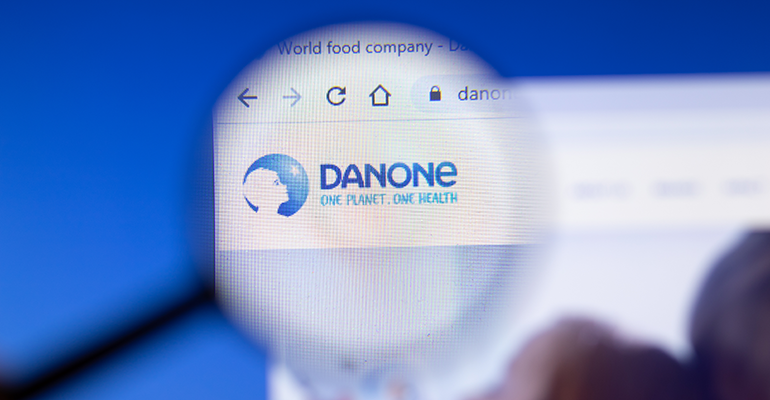 © AdobeStock/Postmodern Studio
© AdobeStock/Postmodern Studio
Changing public opinions
New legislation like the duty of vigilance law is now making that possible and more accessible. ClimateEarth suing Danone isn’t the first time that an environmental group has taken legal action against major manufacturers over the climate crisis, and it’s unlikely to be the last.
The court of public opinion has shifted over the last few decades when it comes to the environment. Widespread support of green initiatives like waste reduction and regenerative agriculture has emboldened activist groups of all kinds to take stronger action against mega-corporations.
Last year, ClientEarth filed a similar suit against TotalEnergies, France’s largest energy company. ClientEarth claimed that the company’s rebranded marketing campaign misled the public about its efforts to fight climate change, alleged that TotalEnergies was off-track on its stated climate goals, and accused it of greenwashing to appease consumers.
In 2020, the Earth Island Institute sued 10 companies, including Coca-Cola, PepsiCo, Nestlé USA, and Procter & Gamble, in a California court to force them to take accountability for plastic pollution in the state’s water. That suit is still on-going, and in 2022 a state judge rejected the corporations’ motion to dismiss the case.
Related news

California companies required to disclose heavy metal content in baby food
10 Jan 2025
As of January 2025, baby food manufacturers selling in California must disclose test results for four heavy metals – arsenic, lead, cadmium, and mercury – via an on-pack QR code.
Read more
Snack trends, ingredient claims, and plant-based perceptions: Highlights from Fi Europe 2023, part 1
7 Dec 2023
Value-led snacking, sustainability storytelling, and the importance of having a ‘star ingredient’: we asked consumer analysts and market experts at Fi Europe about the trends and innovations that are shaping the food industry.
Read more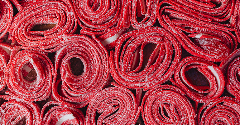
Confirmed: California bans four ‘toxic’ food additives
10 Oct 2023
Four food additives, including the colouring Red No. 3, will be banned in food in the US state of California over safety concerns, with public health campaigners hoping this will spark a nationwide ban in the coming years.
Read more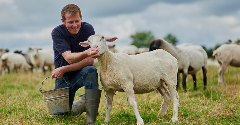
Advocacy groups condemn EU Commission for backpedalling on animal rights
3 Oct 2023
Amid rumours that the EU may abandon its plans to improve animal welfare in farming and end the use of cages, many stakeholders have condemned this possibility and urged the EU to reconsider.
Read more
Poland and Ukraine attempt to resolve grain dispute
29 Sep 2023
Poland and Ukraine have begun talks to try to resolve a dispute regarding the ban on Kyiv’s grain imports that prompted Kyiv to file a lawsuit to the World Trade Organization.
Read more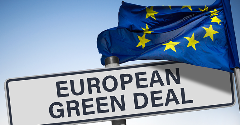
The EU may be set to scrap its sustainability commitments
27 Sep 2023
A speech delivered by President Ursula von der Leyen last week inferred that the EU could be drawing back on its commitments to create a more sustainable and healthier food system.
Read more
Industry first: Mosa Meat becomes first cultivated meat startup to gain B Corp certification
11 Sep 2023
A first for the industry, Dutch cultivated meat company Mosa Meat announced that it has received B Corp certification and will soon apply for regulatory approval across the globe.
Read more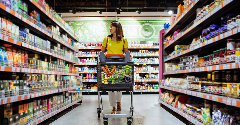
German supermarket trials climate-centric pricing model
29 Aug 2023
German discount supermarket Penny has trialled increasing product prices to mirror their health and environmental costs.
Read more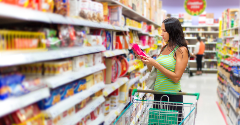
EPR fee delay spurs concerns over UK’s sustainability commitment
8 Aug 2023
The UK government’s decision to push back the introduction of fees for the Extended Producer Responsibility (EPR) due to inflation has raised doubts about whether this sustainability commitment will ever be realised.
Read more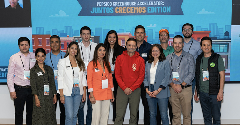
Latino-owned food startups tackle climate change
25 Jul 2023
A growing list of Latino-founded food and beverage startups in the US are putting sustainability at the forefront of their businesses for the sake of the planet.
Read more